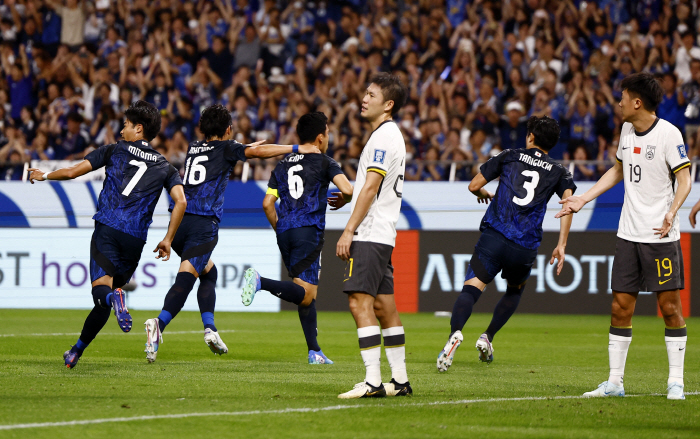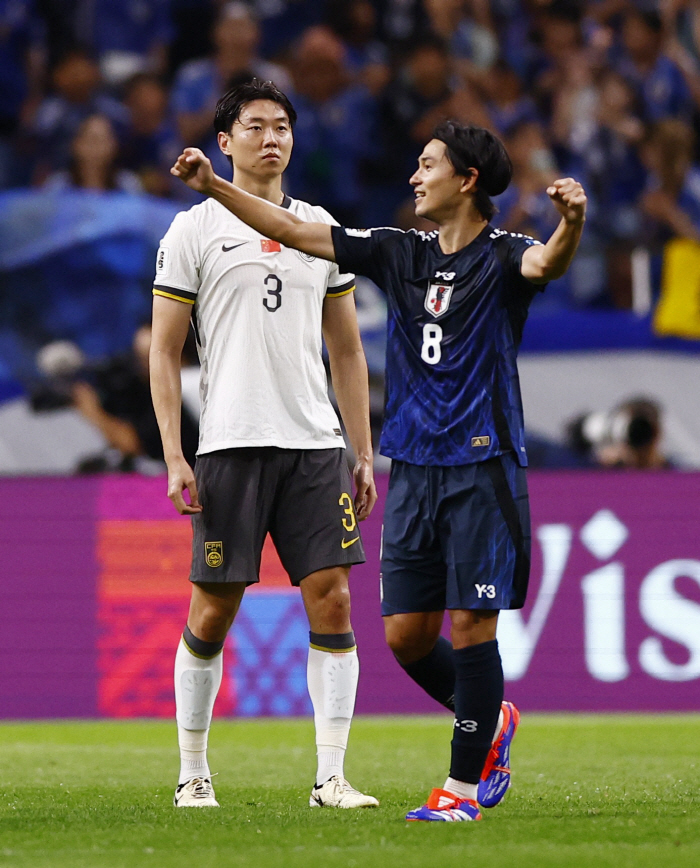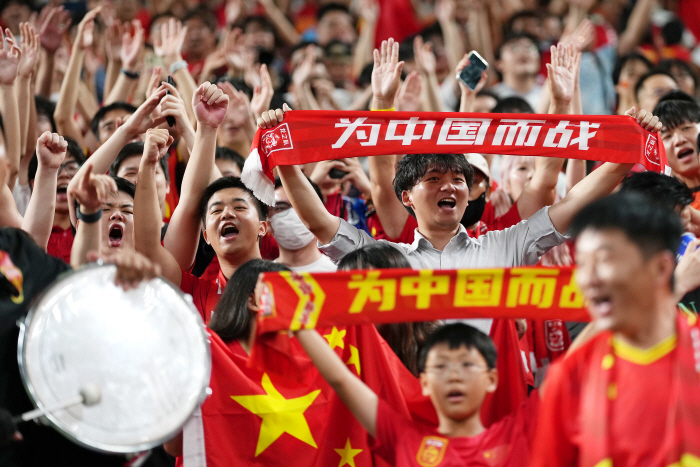[스포츠조선 윤진만 기자]A veteran Japanese soccer reporter attributed the downfall of Chinese soccer to totalitarianism. Reporter Takeo Goto (72), who has been visiting the soccer scene since 1974, spoke about Japanese soccer on the 19th, ahead of the 6th round of the 2026 North, Central America World Cup Asia 3rd Round qualifier between Japan and China. In a column written for the specialized media outlet ‘Soccer Critic’, the topic of ‘Japanese soccer’s reversal in Chinese soccer’ was discussed. “China is a sports powerhouse that won 40 gold medals at the 2024 Paris Olympics and competed with the United States,” he asked. “Why can’t strengthening the sport of soccer be realized?”); Reporter Goto mentioned the time when Chinese soccer dominated Japanese soccer in the early 20th century. “China, which has developed economically in the 21st century, has used its financial power to focus on strengthening soccer. It has achieved achievements such as participating in the Korea-Japan World Cup for the first time in 2002 and finishing as runner-up in the Asian Cup hosted by the country in 2006,” he said. “However, there are no plans to strengthen after that.” “Because of the failure, Chinese soccer has worsened over the past few years,” he wrote. Reporter Goto said, “In 2011, Chinese Communist Party General Secretary Xi Jinping, who loved soccer, set a long-term goal to host and win the Chinese soccer World Cup. As Xi Jinping, who became general secretary of the party and president of the country, established a dictatorial system, local governments and large corporations centered on the real estate industry, who recognized the leader’s intentions, invested a large amount of money into soccer, bringing in famous players from Europe and South America and world leaders. “We built a training facility equipped with the latest equipment and hired youth leaders from Europe to discover promising talent,” he said.
He continued, “We invested this much, but in the end, the plan to strengthen Chinese football failed. The collapse of the real estate bubble and the collapse of the parent company led to the worsening of the club’s management. Due to non-payment of player salaries and the COVID-19 pandemic, foreign players left China one by one. Guangzhou Henda (now Guangzhou FC), once the strongest team in China, was ahead of Japan in the Asian Champions League, but due to financial difficulties due to the bankruptcy of its parent company, Henda Group, it has now fallen to the second division, and corruption has emerged in the soccer world. “This is a frequent occurrence, and everyone from association executives to national team coaches have been arrested in corruption cases,” he wrote.
He concluded that “the more fundamental cause of China’s failure to strengthen soccer is the harmful effects of totalitarianism.” “In the late 20th century, the Soviet Union (Russia) and East Germany were sports powerhouses that won a large number of medals at the Olympics. The state promoted the strengthening of sports through scientific training with the national budget. It was a project that placed the country’s prestige. But that was the development of soccer. However, Russia’s best performance in the World Cup was 4th place in the 1966 World Cup in England. In soccer, it is impossible for a coach to give instructions for each play, and it is not possible to use pre-prepared patterns except for set plays. So in soccer, a player’s individual judgment is very influential: whether to dribble, pass, shoot, return the ball, or whether it is time to attack or hold on… You must make your own decisions. However, in a totalitarian country, there is no education to improve individual judgment, and it is taboo for individuals to think about things with their own heads. “Even if they do, they don’t train to improve their judgment, so soccer doesn’t get stronger in totalitarian countries.”
Reporter Goto analyzed that the Hungarian national team, which dominated Europe in the 1950s, enjoyed its heyday because it coincided with the ‘period of liberalization in Eastern European countries.’ Finally, he concluded, “When the Xi Jinping regime collapses and liberalization is realized, the day may come when Chinese soccer, known as the ‘sleeping dragon,’ will rise again. But that will be in the distant future.”
China suffered a crushing 0-7 loss in an away trip to Japan last September. The return match will be held at Xiamen Stadium in China at 9 p.m. on the 19th. China, which overcame a sluggish performance at the beginning of the third preliminary round and rebounded with two consecutive wins, rose to fourth place in Group C with six points. They have the same points as Australia in second place and Saudi Arabia in third place, but they are behind in goal difference. Japan is leading Group C alone with 13 points from 4 wins, 1 draw, and 5 games.
Reporter Yoon Jin-man [email protected]

How can the Chinese government balance investment in soccer programs with fostering individual player creativity to compete globally?
What do you think are the main reasons behind the downfall of Chinese soccer? How can China ensure a bright future for its soccer teams and potentially become a global soccer powerhouse? Can a country’s political system or leadership have a significant impact on its success in soccer, and if so, how? Can China learn from other countries like Germany or Brazil, who have successfully utilized their financial resources to improve their soccer programs while still promoting individual player creativity? Do you think liberalization is the key to strengthening Chinese soccer, or are there other factors that need to be considered? what do you think the future holds for China in international soccer competitions, and how can it catch up to powerhouses like Japan and Korea?




![[김경환 변호사의 디지털법] 〈42〉The practice of writing complaints and accusations by company executives and employees must be changed. [김경환 변호사의 디지털법] 〈42〉The practice of writing complaints and accusations by company executives and employees must be changed.](https://morganmadeleine.com/wp-content/uploads/2022/01/Wedding-detail-photos.jpg)
